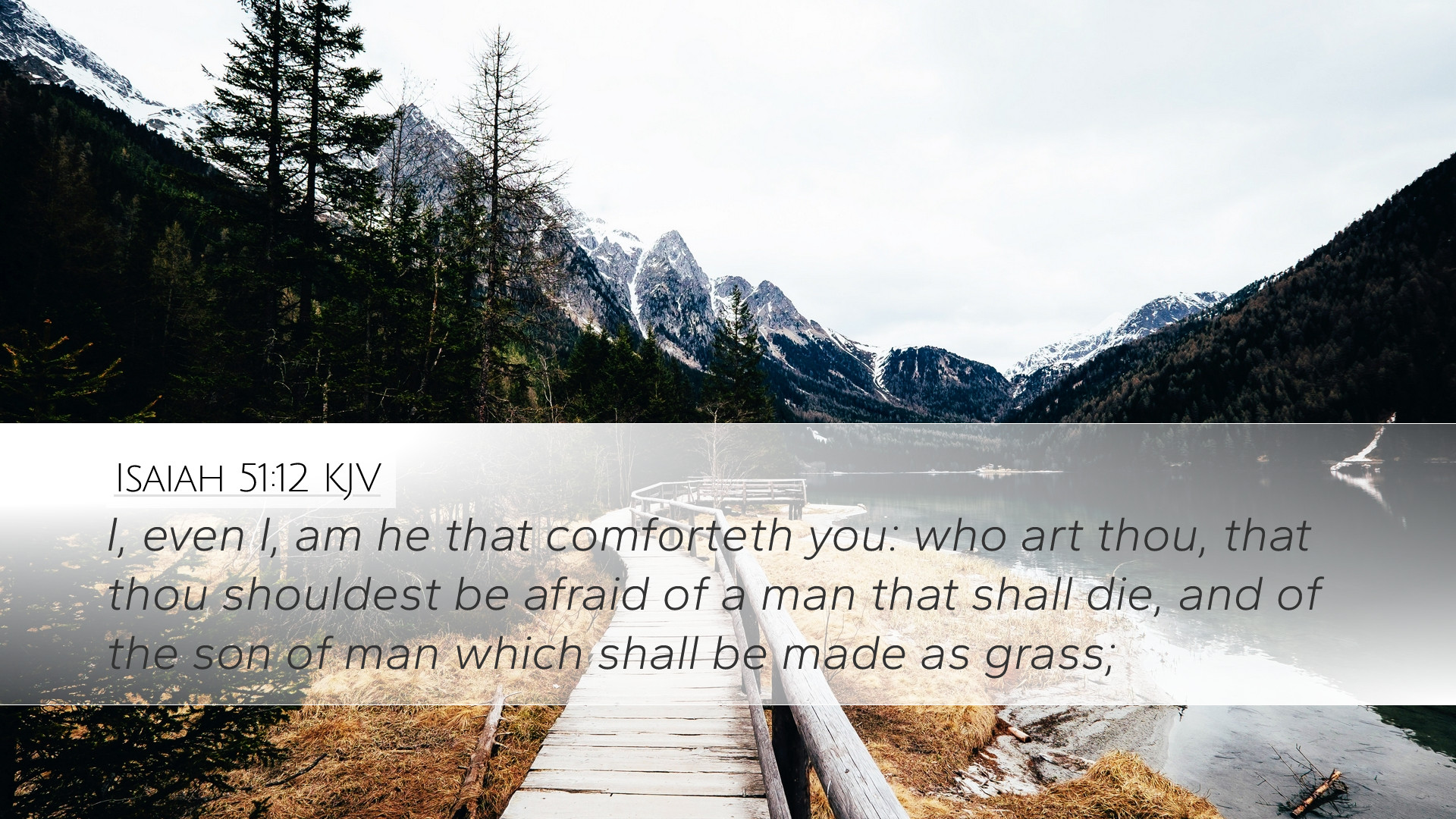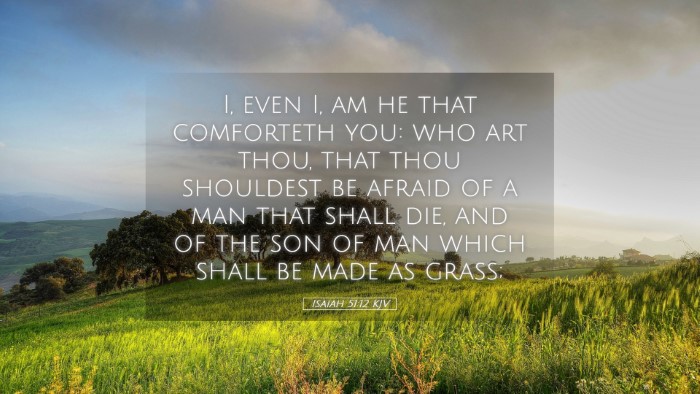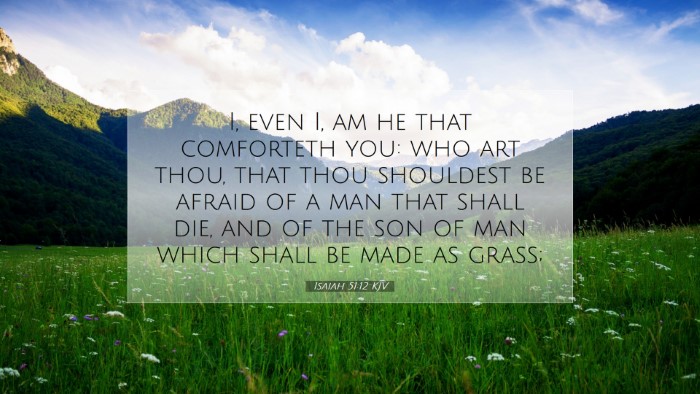Commentary on Isaiah 51:12
Bible Verse: Isaiah 51:12
"I, even I, am he that comforteth you: who art thou, that thou shouldest be afraid of a man that shall die, and of the son of man which shall be made as grass;" (Isaiah 51:12, KJV)
Introduction
This verse from the book of Isaiah serves as a powerful reminder of God's comforting presence amidst the fears and challenges faced by His people. It particularly addresses Israel during their time of suffering and uncertainty, stating clearly the supremacy of God's comfort over the transitory nature of human existence.
Contextual Background
Historical Context: The book of Isaiah was penned during a crucial time for the Israelites, particularly reflecting their exile and oppression. The prophet Isaiah, serving as God's messenger, conveys messages of hope and reassurance in the face of impending doom from foreign nations. In chapter 51, the prophet urges his people to listen to God’s promises, reinforcing their faith in His unfailing love and power.
Thematic Relevance: Themes of divine comfort, protection, and the transient nature of human oppressors are prevalent throughout this passage. Isaiah contrasts the eternal reassurance found in God against the finite nature of human strength and authority.
Commentary Insights
-
Matthew Henry's Commentary:
Henry emphasizes the personal nature of God's statement, "I, even I, am he that comforteth you." He notes that God actively takes responsibility for comforting His people, which acknowledges their pain and struggles amidst oppression. Henry reminds readers that reliance on God should overshadow fear of mortal threats.
-
Albert Barnes’ Notes on the Bible:
Barnes elaborates on the phrase "who art thou, that thou shouldest be afraid of a man that shall die." He interprets this as God's challenge to the Israelites to reassess what truly warrants their fear. Human beings, regardless of their power or position, are ultimately frail and fleeting. Barnes urges believers to place their trust solely in God, who endures eternally.
-
Adam Clarke's Commentary:
Clarke provides a linguistic analysis, pointing out that the phrase "son of man" refers to humanity's inherent frailty. He expounds upon the imagery of grass, illustrating the brevity of life and human accomplishments in comparison to the everlasting nature of God's promise and Word. Clarke encourages a perspective shift where God's omnipotence becomes the anchor of hope for the weary.
Theological Implications
This verse raises several theological considerations relevant to contemporary faith practice:
- The Nature of God’s Comfort: God’s role as the ultimate comforter emphasizes His intimate relationship with His people. Comfort is not passive; it conveys active engagement from God in the suffering of His people.
- The Transience of Humanity: The juxtaposition of God's eternal nature with human frailty serves as a reminder that earthly powers can be dismantled or diminished, pushing believers to seek their identity and security in the eternal God.
- Encouragement Against Fear: The exhortation against fear reflects a recurrent biblical theme, challenging believers to confront their anxieties with faith. This assurance is especially poignant in times of personal or communal distress.
Application for Today’s Believers
Isaiah 51:12 calls modern believers to draw deeply from the well of divine comfort when facing uncertainties:
- Personal Reflection: Assess personal fears in the context of God’s eternal promises. Believers are urged to lean into their faith, seeking God’s comfort over the anxieties of daily life.
- Community Support: Encourage church communities to become conduits of God’s comfort, fostering environments where individuals feel safe to express their fears and receive support.
- Preaching and Teaching: Pastors are reminded of the importance of preaching hope, using God’s promises to uplift congregations, especially in trying times.
Conclusion
Isaiah 51:12 poignantly captures the heart of God's comforting presence while starkly reminding humanity of its fleeting nature. Through the insights of esteemed commentators, we learn that reliance on God supersedes all earthly fears. This scripture not only serves as a historical testament to Israel's plight but also echoes into contemporary faith, encouraging believers to rest assured in the unshakeable comfort that only God can provide.


